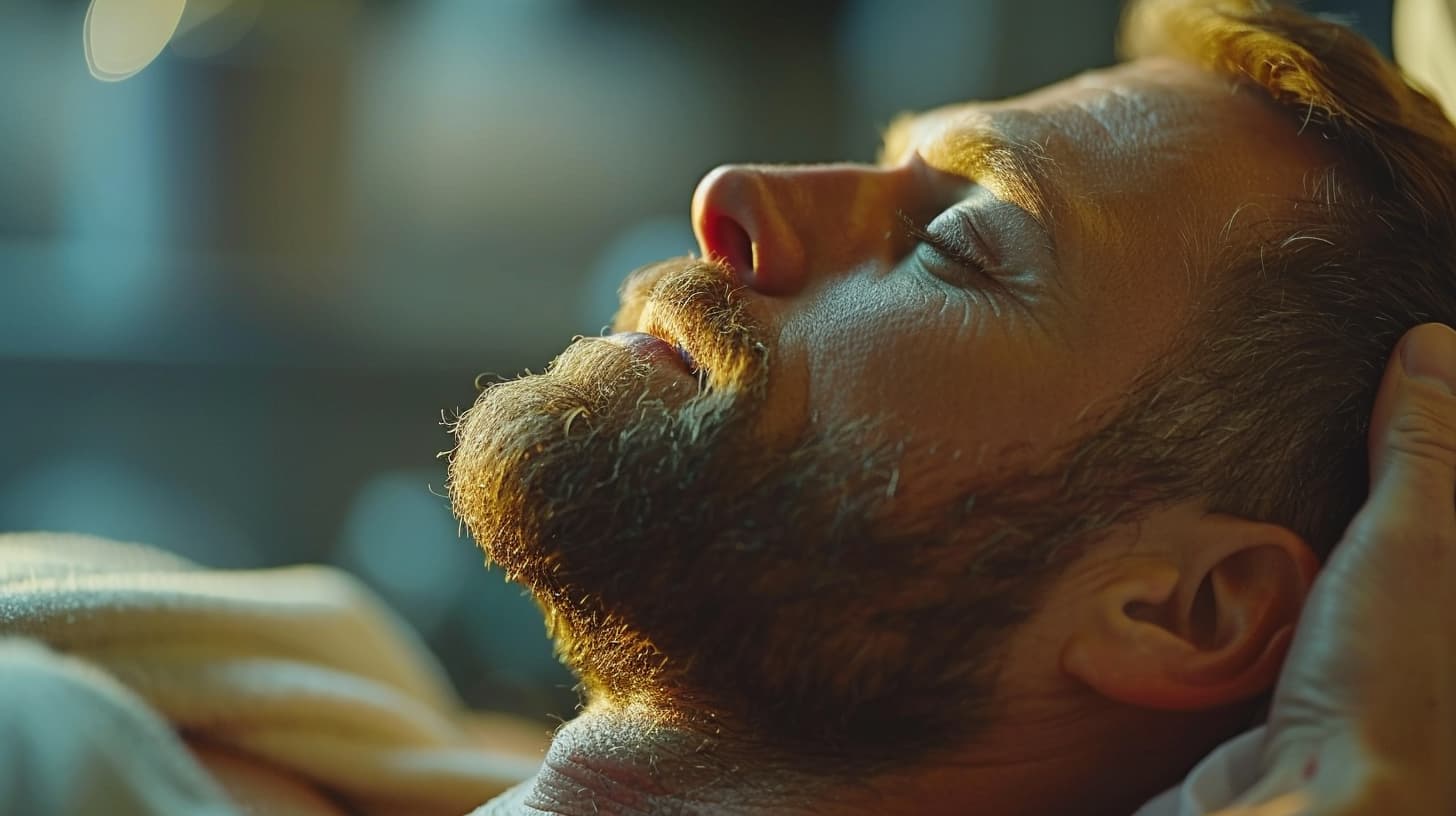By We Level Up Lawrenceville NJ | Author Inês Oliveira, MSc, PhD Candidate | Editorial Policy | Research Policy
Introduction to Ativan and Alcohol Treatment at We Level Up NJ
When Ativan (lorazepam) and alcohol combine in your system, they create a dangerous cocktail that can quickly spiral into life-threatening complications. Both substances depress the central nervous system, and together, they intensify each other’s effects, sometimes with devastating consequences.
At We Level Up NJ, we’ve seen firsthand the unique challenges that come with Ativan and alcohol dependency. That’s why we’ve developed specialized treatment protocols tailored to address the complexities of this dual addiction.
Our New Jersey facility offers comprehensive care that goes beyond simply managing withdrawal symptoms. We provide a supportive, 24/7 medically supervised environment, where you can safely detox and uncover the underlying factors contributing to substance use.
According to a 2016-2017 prevalence study, nearly 1 in 4 emergency department visits related to the nonmedical use of benzodiazepines also involved alcohol. This statistic underscores the seriousness and widespread impact of this dangerous combination.
Recovery starts with understanding. Let’s explore why Ativan and alcohol dependency requires specialized care, and how our expert team at We Level Up NJ can help you reclaim control of your life.
Understanding Ativan and Alcohol: Risks and Effects
Ativan belongs to the benzodiazepine family, a class of medications primarily prescribed for anxiety, insomnia, and seizure disorders. Alcohol, though socially accepted, is a potent central nervous system depressant. Both substances enhance the effects of gamma-aminobutyric acid (GABA), a neurotransmitter that slows brain activity.
When taken together, these substances amplify each other’s effects, creating a synergistic interaction that makes the combination particularly dangerous.
When taken together, these substances interact synergistically (producing effects that exceed the sum of their individual impacts), making the combination particularly dangerous.
Here’s what happens in your body when Ativan and alcohol mix:
- Respiratory Depression: Both substances slow your breathing rate, and together, they can reduce it to dangerous and even fatal levels.
- Profound Sedation: The combined sedative effects can lead to unconsciousness and inability to be roused.
- Cognitive Impairment: Memory formation becomes severely compromised, leading to blackouts and gaps in recall.
- Increased Risk of Overdose: The threshold for overdose drops significantly when these substances are combined.

Research shows that alcohol plays a significant role in benzodiazepine-related emergencies and fatalities. It is involved in over 27% of benzodiazepine-related emergency department visits and 21.4% of benzodiazepine-related deaths, highlighting the dangers of combining these substances.
What makes this combination particularly insidious is how it can evolve from seemingly innocent beginnings. Perhaps you were prescribed Ativan for legitimate anxiety issues and found that having a drink helped “take the edge off” even more. Or maybe alcohol was your primary substance, and Ativan entered the picture later as a way to manage anxiety or sleep problems.
Regardless of how it began, breaking free from this dual dependency requires specialized care, the kind we’ve developed and refined at We Level Up NJ.
Signs and Symptoms of Ativan and Alcohol Dependency
Recognizing a problem is the first step toward recovery. If you’re concerned about yourself or a loved one, watch for these telltale signs of signs of Ativan and alcohol codependency:
- Excessive drowsiness that persists throughout the day
- Slurred speech, even when seemingly sober
- Unsteady gait or poor coordination
- Unexplained injuries from falls or accidents
- Shallow breathing or respiratory issues
- Memory gaps or complete blackouts
- Doctor shopping to obtain multiple Ativan prescriptions
- Withdrawal symptoms when attempting to cut back (tremors, anxiety, insomnia)
- Continued use despite negative consequences to health, relationships, or work
The development of tolerance is especially dangerous with this combination. As your body adapts, you require increasing amounts of both substances to achieve the same effect, bringing you closer to potentially fatal doses.
What makes this combination particularly challenging is that withdrawal from both substances simultaneously can be life-threatening if not properly managed. Seizures, severe anxiety, delirium, and dangerous changes in heart rate and blood pressure can occur. This is why professional treatment, rather than attempting to quit cold turkey on your own, is absolutely essential.

Get Your Life Back
Find Hope & Recovery. Get Safe Comfortable Detox, Addiction Rehab & Mental Health Dual Diagnosis High-Quality Care at the We Level Up Treatment Centers Network.
Hotline (877) 378-4154Why Choose We Level Up NJ for Ativan and Alcohol Treatment?
When it comes to addressing the complex interplay between Ativan and alcohol dependency, specialized care isn’t just preferable—it’s essential. At We Level Up NJ, we’ve built our reputation on providing exactly this type of nuanced, expert treatment.
Our New Jersey facility stands apart for several key reasons:
- Dual Substance Expertise: Our clinical team is specifically trained and experienced in treating benzodiazepine and alcohol codependency, a combination that requires particularly careful medical management during detoxification.
- Accredited, Evidence-Based Care: We maintain Joint Commission accreditation, adhering to the highest standards in addiction treatment. Our protocols are grounded in research-backed approaches that have proven effective for this specific combination of substances.
- Comprehensive Assessment: Before treatment begins, you’ll undergo a thorough evaluation that examines your substance use patterns, underlying mental health conditions, physical health concerns, and personal circumstances that may impact your recovery journey.
- A Supportive Setting: At our facility, we combine clinical excellence with comfort, offering private and semi-private rooms, nutritionally balanced meals, and amenities designed to support your overall well-being, all of which complement our medical and therapeutic services.
- 24/7 Medical Supervision: With a staff-to-patient ratio that ensures individualized attention, we provide the safety and support necessary during this challenging, but ultimately rewarding, process of reclaiming your life.
Perhaps most importantly, we understand the New Jersey landscape of addiction and recovery. Our connections with local support networks ensure that when you complete our program, you’ll have access to community resources that support your continued sobriety journey.
Comprehensive Detoxification for Ativan and Alcohol
Detoxification from Ativan and alcohol requires specialized medical supervision and should never be attempted without professional support. At We Level Up NJ, our medical detox program is specifically designed to address the unique challenges associated with withdrawing from both substances simultaneously.
The withdrawal timeline typically unfolds in in stages:
Early Withdrawal (6-12 hours after last drink/dose):
- Mild anxiety
- Palpitations
- Headache
- Insomnia
- Sweating
- Gastrointestinal issues
Peak Withdrawal (24-72 hours):
- Increased risk of seizures (particularly high with this combination)
- Potential for delirium tremens, which may include agitation, perceptual disturbances, or tachycardia
Extended Withdrawal (may persist for several weeks):
- Gradually diminishing physical symptoms
- Ongoing anxiety and sleep disturbances
- Cognitive difficulties
- Reduced ability to experience pleasure
Our medical team uses a carefully calibrated approach for both alcohol and Ativan withdrawal, which may include:
- Medication-assisted treatment: We utilize longer-acting benzodiazepines, administered on a tapering schedule, to prevent dangerous withdrawal symptoms and allow your body to adjust gradually.
- Anticonvulsant medications: These medications may reduce the risk of seizures and can address some withdrawal symptoms without the addictive potential of benzodiazepines.
- Supportive medications: These help manage specific symptoms like nausea, headaches, or insomnia.
- Nutritional support: IV fluids, vitamins, and balanced nutrition to correct deficiencies common in those with substance use disorders.
Throughout detox, our nursing staff conducts regular assessments using standardized tools, such as the Clinical Institute Withdrawal Assessment (CIWA) scale, to objectively measure your withdrawal symptoms and adjust treatment accordingly.
Detox is just the beginning of your recovery journey. As your body stabilizes, we introduce therapeutic elements that address the psychological aspects of dependency, setting the stage for deeper healing.
Comfortable Facilities & Amenities
High-Quality Addiction & Mental Health Rehabilitation Treatment
Rehab Centers TourRenowned Addiction Centers. Serene Private Facilities. Inpatient rehab programs vary.
Addiction Helpline (877) 378-4154Proven recovery success experience, backed by a Team w/ History of:
15+
Years of Unified Experience
100s
5-Star Reviews Across Our Centers
10K
Recovery Success Stories Across Our Network
- Low Patient to Therapist Ratio
- Onsite Medical Detox Center
- Comprehensive Dual-Diagnosis Treatment
- Complimentary Family & Alumni Programs
- Coaching, Recovery & Personal Development Events
Inpatient Rehab Programs for Ativan and Alcohol Recovery
Following successful detoxification, our inpatient rehabilitation program offers the structured environment and intensive therapeutic support necessary to address the psychological aspects of Ativan and alcohol dependency.
In general, a typical residential program can last from 28 to 90 days, depending on your specific needs and progress. This immersive experience removes you from triggers and temptations and provides 24/7 support. Our therapeutic approach includes:
Evidence-Based Modalities
- Cognitive-Behavioral Therapy (CBT): Helps identify and change the thought patterns that contribute to substance use.
- Dialectical Behavior Therapy (DBT): Teaches mindfulness and emotional regulation skills, particularly useful for those who used substances to self-medicate anxiety.
- Motivational Enhancement Therapy (MET): Strengthens internal motivation for change.
Specialized Group Therapy
- Groups focused on polysubstance use
- Education on medication management
- Skills for managing anxiety and stress without substances
- Relapse prevention

Carefully Structured Daily Schedule
- Individual therapy sessions (3-5 times weekly)
- Group therapy (daily)
- Educational workshops
- Holistic activities (yoga, meditation, art therapy)
- Fitness and nutritional components
- Family therapy sessions (weekly)
This comprehensive approach addresses the substance use itself, and also the underlying factors that contribute to it. Many clients find that their Ativan use started as an attempt to manage anxiety, while alcohol became a means to enhance its effects or manage Ativan withdrawal between doses.
By providing a safe, substance-free environment where you can develop new coping skills and begin healing both physically and emotionally, our inpatient program lays the foundation for lasting recovery.
World-class, Accredited, 5-Star Reviewed, Effective Addiction & Mental Health Programs. Complete Behavioral Health Inpatient Rehab, Detox plus Co-occuring Disorders Therapy.
CALL (877) 378-4154End the Addiction Pain. End the Emotional Rollercoaster. Get Your Life Back. Start Drug, Alcohol & Dual Diagnosis Mental Health Treatment Now. Get Free No-obligation Guidance by Substance Abuse Specialists Who Understand Addiction & Mental Health Recovery & Know How to Help.
Dual-Diagnosis Treatment for Co-Occurring Disorders
For many individuals struggling with Ativan and alcohol dependency, underlying mental health conditions significantly influence substance use patterns. At We Level Up NJ, we specialize in dual-diagnosis treatment that simultaneously addresses both addiction and co-occurring mental health disorders.
The 2023 National Survey on Drug Use and Health indicates that 35% of U.S. adults aged 18 and older with a mental health disorder also have a substance use disorder. This percentage tends to be even higher among individuals using benzodiazepines such as Ativan.
Common co-occurring conditions we treat alongside Ativan and alcohol dependency include:
- Anxiety disorders (often the initial reason for Ativan prescription)
- Depression
- Post-traumatic stress disorder
- Panic disorder
- Insomnia and sleep disorders
Our integrated approach ensures that both conditions receive the appropriate attention, as treating one without addressing the other significantly increases the risk of relapse.
Our dual-diagnosis program includes:
- Psychiatric evaluation and ongoing medication management
- Trauma-informed therapy approaches
- Specialized groups addressing the intersection of mental health and substance use
- Skills training for managing symptoms without substances
- Education on how substances affect mental health conditions
By addressing the full scope of your health, and not only the substance use, we develop a treatment plan that leads to more sustainable recovery outcomes.
Many clients find that when their mental health conditions are properly treated, the urge to self-medicate with Ativan and alcohol decreases significantly.
This integrated approach sets the gold standard in modern addiction treatment, going beyond the outdated model that treats addiction in isolation from other mental health concerns.
Get Help. Get Better. Get Your Life Back.
Searching for Accredited Drug & Alcohol Rehab Centers Near You? Or Mental Health Support?
Even if you have failed previously, relapsed, or are in a difficult crisis, we stand ready to support you. Our trusted behavioral health specialists will not give up on you. Call us when you feel ready or want someone to speak to about therapy alternatives to change your life. Even if we cannot assist you, we will lead you wherever you can get support. There is no obligation. Call our hotline today.
FREE Addiction Hotline – Call 24/7Aftercare and Ongoing Support
Recovery doesn’t end when you complete our inpatient program. In fact, the transition back to daily life presents new challenges that require ongoing support. At We Level Up NJ, we begin planning for this transition from the moment you enter treatment. Our comprehensive aftercare planning includes:
Personalized Continuing Care: Before discharge, you’ll collaborate with your treatment team to develop a structured plan that may include:
- Step-down care options (partial hospitalization or intensive outpatient programs)
- Outpatient therapy appointments
- Medication management follow-up
- Support group recommendations

Relapse Prevention Strategies: We’ll help you identify personal triggers and develop specific action plans for high-risk situations.
Community Connections: We maintain relationships with recovery resources throughout New Jersey, assisting you in building a support network in your local area.
Our alumni program offers ongoing connection through:
- Monthly alumni meetings
- Digital check-ins
- Annual recovery celebration events
- Volunteer opportunities to support others in early recovery
Research suggests that aftercare programs with a planned duration of at least 12 months, combined with active engagement and retention efforts, are associated with more positive recovery outcomes compared to shorter or less structured interventions.
We consider aftercare an integral part of the recovery process. Our dedication to your well-being extends beyond your time in our facility, ensuring you have the ongoing support needed for lasting recovery.
Take the First Step Toward Recovery Today
Choosing to seek help for Ativan and alcohol dependency is an act of courage that opens the door to a healthier, more fulfilling life. At We Level Up NJ, we’re ready to support you every step of the way, offering expert care and compassionate guidance.
The process begins with a simple, confidential conversation. Our admissions team is available 24/7 to:
- Answer your questions about our programs
- Verify your insurance coverage
- Conduct a preliminary assessment of your needs
- Guide you through the admissions process
Don’t let financial concerns prevent you from reaching out. We work with most major insurance providers and can help you explore all available options to make treatment accessible.
Every recovery journey begins with a single step. The path ahead may feel overwhelming, but you don’t have to walk it alone. Our dedicated team combines clinical expertise with genuine compassion to your care.
Your new beginning is just a phone call away. Contact We Level Up NJ today at 877-378-4154 or visit our website to start your confidential assessment.
Frequently Asked Questions
Do you have to pay for alcohol and Ativan dual diagnosis in NJ?
Treatment for alcohol and Ativan dual diagnosis involves costs, but many insurance plans cover some or all of these services. At We Level Up NJ, we accept most major insurance providers and work to maximize your benefits.
For those without insurance or with limited coverage, we offer financing options. Our admissions team provides complimentary insurance verification and will clearly outline all costs before treatment begins, ensuring full transparency with no surprises.
How long does alcohol and Ativan dual diagnosis treatment last in New Jersey?
The duration of alcohol and Ativan dual diagnosis treatment depends on individual needs, generally ranging from 28 to 90 days for inpatient care.
At We Level Up NJ, we tailor the treatment length based on several factors: the severity of dependency, the presence of co-occurring disorders, previous treatment history, and your personal progress.
Detoxification typically lasts 7-14 days due to the complex withdrawal process, followed by rehabilitation. Many clients transition to outpatient care after completing residential treatment, extending their total recovery support for 6-12 months to ensure optimal outcomes.
Where in New Jersey can you find alcohol and Ativan dual diagnosis addiction rehab?
We Level Up NJ offers specialized alcohol and Ativan dual diagnosis treatment at our facility in Lawrenceville, serving clients throughout New Jersey. Our location provides a serene environment conducive to healing while remaining easily accessible from major population centers such as Newark, Jersey City, and Atlantic City.
Beyond our facility, New Jersey is home to several CARF or Joint Commission-accredited treatment centers specializing in dual diagnosis care, primarily concentrated in northern New Jersey and along the coast.
Experience Transformative Recovery at the We Level Up Treatment Center.
See our authentic success stories. Get inspired. Get the help you deserve.



Start a New Life
Begin with a free call to an addiction & behavioral health treatment advisor. Learn more about our dual-diagnosis programs. The We Level Up treatment center network delivers various recovery programs at each treatment facility. Call to learn more.
- Personalized Care
- Caring Accountable Staff
- Comfortable Amenities
- Licensed & Accredited
- Renowned w/ 5-Star Reviews





